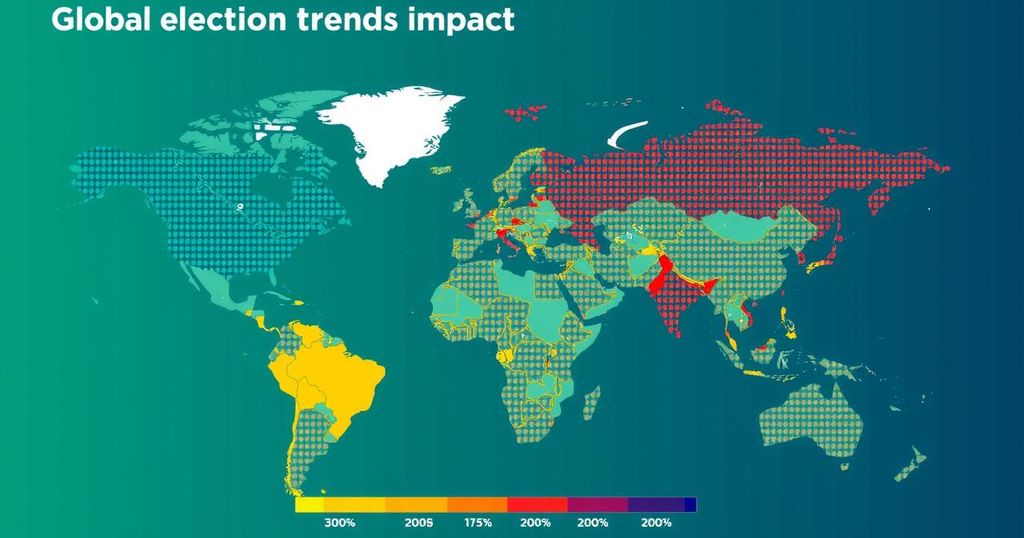The 2024 global election cycle underscores a decline in commitment to climate action amid rising extreme weather events and political prioritization of economic issues. Leaders like Trump have gained traction in dismissing climate urgency, while right-wing parties in Europe echo similar sentiments. The recent COP29 summit’s lack of significant advancements raises concerns about the future trajectory of climate initiatives in a politically polarized environment.
The global election cycle of 2024, heralded as an unprecedented political event, has coincided with a noticeable regression in commitments to climate action in numerous countries. While climate disasters and extreme weather events escalate, political discourse in nations like the United States, the European Union, and Russia seems to prioritize economic concerns over ecological ones. Prominent figures, including President-elect Donald Trump and various right-wing politicians in Europe, have openly dismissed the urgency of the climate crisis.
Catherine Fieschi, a political expert, highlights the disconcerting trend in advanced economies where climate initiatives have suffered significantly due to pressing issues such as inflation and global conflicts. This shifting political landscape suggests that climate change, once dominating the global agenda, is increasingly viewed as a secondary concern.
Despite the severity of climate events, including record heat and flooding across various continents, climate discussions have largely receded from the forefront of electoral debates. In India, however, farmer protests concerning the adverse effects of climate change managed to elevate the issue, indirectly benefiting Prime Minister Narendra Modi. In Europe, right-leaning parties capitalized on public sentiment against climate expenditures, indicating a worrying trend of prioritizing short-term economic relief over long-term environmental sustainability.
The recent international climate summit in COP29 has further illuminated the challenges facing climate initiatives, as it was largely boycotted by key leaders and resulted in minimal progress on emission cuts or funding for vulnerable nations. Activists have expressed their frustration with the prevailing climate rhetoric, contrasting it with the reality of rising greenhouse gas emissions. While there are notable advancements in renewable energy sectors, the overarching sentiment reflects a diminished hope for decisive climate action, particularly with the impending influence of leaders like Trump.
As the world grapples with the ramifications of the climate crisis amidst escalating elections and rising populism, the need for urgent and concerted action becomes increasingly critical, yet increasingly elusive.
The topic addresses the troubling trend of diminishing commitments to climate action in light of upcoming global elections characterized by the rise of populism and economic insecurity. Despite the occurrence of extreme weather events that starkly highlight the urgency of addressing the climate crisis, political parties and leaders have tended to prioritize short-term economic issues over environmental concerns. This scenario sets the stage for understanding current global climate policies and public attitudes toward climate change amidst increasing political polarization.
In conclusion, the simultaneous global electoral dynamics of 2024 and the escalating climate crisis present a disheartening picture for international climate action. The electoral gains of climate-skeptic leaders reflect a broader societal trend prioritizing economic concerns over urgent environmental needs. The COP29 summit’s lackluster outcomes further illustrate this point, emphasizing the need for immediate and cohesive efforts to combat climate change despite the emerging anti-climate sentiment in many nations.
Original Source: www.theguardian.com






